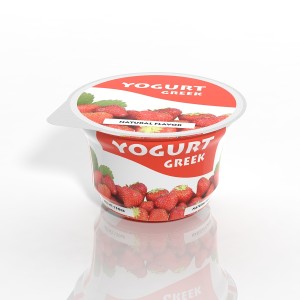 Our society loves to generalize certain types of foods as good or bad. For example, when given the choice between chicken and beef, most people automatically assume chicken is the healthier choice because it has less saturated fat and cholesterol.
Our society loves to generalize certain types of foods as good or bad. For example, when given the choice between chicken and beef, most people automatically assume chicken is the healthier choice because it has less saturated fat and cholesterol.
But it’s not that simple. How were the animals raised? What were they fed? Were they given any drugs? Was the food processed? Where was it processed?
Beef from a grass-fed cow that wasn’t given antibiotics and hormones could be far healthier, especially if the chicken consumed pesticide-infested feed and was shipped to China for processing before being sold to you at your local grocery store.
The same kind of generalization typically applies to yogurt. Many people consider yogurt a healthy snack. After all, yogurt has those probiotics that are so good for us. They often choose the fat-free or light options, assuming those are even healthier.
Well, you know what they say about people who “assume.”
Some yogurt is very healthy. But the vast majority of yogurt you see at the grocery store is bad for you.
That’s because food manufacturers like to take things that are healthy and make them unhealthy by adding artificial sweeteners or high fructose corn syrup. In fat-free yogurts, natural fats are basically replaced by tons of sugar.
For the record, it’s virtually impossible to make a food healthier by adding a substance made by man in a science lab.
The only kind of yogurt that is truly good for you is organic plain Greek yogurt. You get twice as much protein with no artificial ingredients, no added sugar, no hormones and no antibiotics.
Part of the confusion is due to the lack of FDA regulations about what can or cannot be called Greek yogurt. Like everything else, you have to read the label.
The main ingredients in organic Greek yogurt are milk and live active cultures. When you see things like whey concentrates and modified corn starch, put it down and look for a different brand. It’s not Greek yogurt because the food manufacturer skipped the straining process that reduces milk sugar and added artificial ingredients instead.
Flavored and frozen Greek yogurts are typically loaded with sugar, too. If you want to give plain Greek yogurt more flavor, add fresh fruit. If you want it colder, put in the freezer for a little while. And when you read the label, look for sugar’s many aliases that food manufacturers use to hide sugar content.
It’s also a good idea to do some research to ensure that no genetically modified organisms (GMOs) have been added. Because GMO labeling still isn’t required, you’ll have to do that research on your own.
Remember, not all yogurt is healthy. Not all Greek yogurt is healthy. Read the label and make sure your choosing organic plain Greek yogurt. Then you can enjoy a truly healthy snack.